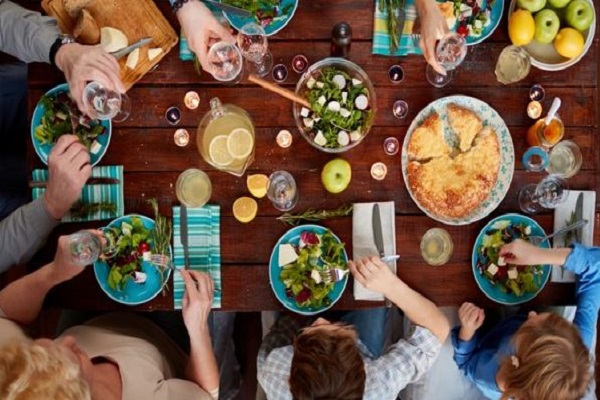Looking at our own four, who now range in age from 17 to 23, I have always felt that Faith has been a positive, strengthening influence in their lives.
From the beginning we wanted to raise our children as people of Faith and have made that one of the priorities in our life as a family. I was delighted recently when an article by John Sharry, Social Worker and Child & Family Psychotherapist, who developed the Parents Plus parenting programmes, confirmed that involvement in ‘religious practice’ is positive for children.
In the Irish Times article about building resilience in our children, John Sharry notes 11 ‘developmental assets’ that are important. Among them are coming from a loving and supportive family, parents setting clear, consistent boundaries, having good communication and participating in church/religious activities.
When I work with parents and ask them why they want their children to have Faith, they tell me it is so that they will have hope, a sense of being part of something bigger than themselves, a relationship with God and confidence in God’s care for them, a sense of right and wrong that is rooted in respect for others. The positives are clear to see.
So often the media portrays Christian faith as a limitation, a burden, a liability. I think we need to reclaim it as a positive, a force for good, a perspective on life that challenges us to act justly, love tenderly and walk humbly with God (Micah 6:8).
I hope that as we enter into 2018, the year when the World Meeting of Families will happen in Dublin, we will take ownership of our Faith in a new and confident way. Pope Francis talks about the Gospel of the Family – that encounter with God in the bits and pieces of our ordinary, everyday lives as family. My commitment for 2018 is to pay more attention to that Gospel which is being written day in, day out in our own lives.
What do I mean by that? In these days over Christmas and into the New Year we have been blessed to have our family all at home. Yes, there is more cooking to do (why do my children all forget how to cook when they come home to mammy?!), more washing, more squabbles over what is on the TV but I need to take time to be aware of the blessings.
I love the laughter we have together. My heart delights in the hugs and cuddles I share with these young adults who were once my babies. I see tenderness, goodness and generosity in them. Yes, they have rows, but they have an ability to forgive and move forward.
We are blessed with the presence of extended family, the craic, the storytelling and the laughter they bring. The meals we share – whether it is an elaborate dinner or bacon rolls and a cup of tea – are our way of ‘breaking bread’ together and have an undeniable connection to the Eucharist.
This is the stuff of Incarnation. This is love made real in just the same way that Jesus, born of Mary, makes real God’s desire for a loving, relationship with us. In Jesus we encounter God’s love face to face, just as we do in the love of each other. This is the grace that abounds in our lives – if we stop to notice it.
And that to me is the key. We need to notice. We need to pay attention to the presence and action of God made real in the blessings and indeed even in the challenges of every day.
Here we encounter incarnation, sacrament, death and resurrection. The more we and our children notice, name, claim and celebrate that presence and action of God, the more we take confident ownership of our faith as a positive reality that shapes and enriches our lives day by day.


 Bairbre Cahill
Bairbre Cahill